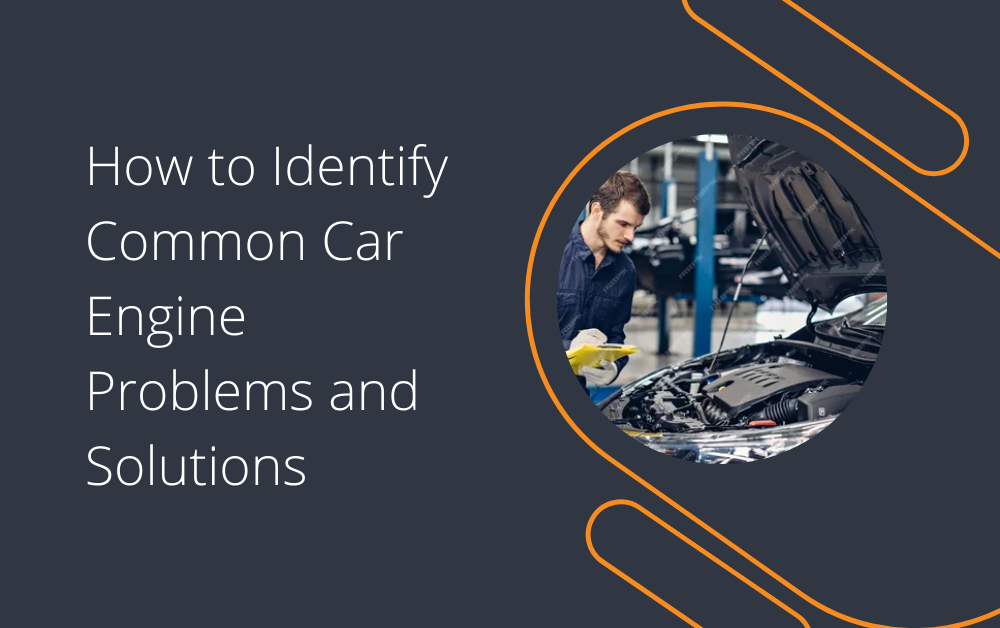Maintaining your car’s engine is crucial for its longevity and performance. Understanding the common problems that can arise and knowing how to address them can save you time and money. This guide will help you identify and solve typical engine issues in a straightforward, easy-to-understand manner.
Introduction to Car Engine Problems
Every car owner should be aware of the common issues that can affect their engine. Recognizing these problems early can prevent more significant, costly repairs down the line. This section will introduce you to some of the most frequent car engine troubles.
Why Understanding Engine Problems is Important
Your car’s engine is like its heart. If it isn’t functioning correctly, your car won’t either. Learning about potential engine problems helps you become a more informed car owner. This knowledge enables you to detect issues early, saving you from unexpected breakdowns and expensive repairs.
Common Symptoms of Engine Problems
Engines show various symptoms when something is wrong. Being able to recognize these signs can help you take timely action. Some common symptoms include strange noises, reduced performance, and warning lights on your dashboard.
Note:- Don’t let car engine problems slow you down. For expert Car Engine Repair & Services in Dubai, contact us today and keep your engine running smoothly. Visit our website or call us now to schedule an appointment!
Common Car Engine Problems and Their Solutions
This section will delve into specific engine problems, explaining what they are, why they happen, and how to fix them. By understanding these issues, you can better maintain your vehicle and ensure it runs smoothly.
Engine Overheating
One of the most common engine problems is overheating. Overheating can cause severe damage if not addressed promptly.
Causes of Engine Overheating
Several factors can lead to engine overheating. Common causes include a low coolant level, a faulty thermostat, a broken water pump, or a clogged radiator. Sometimes, the issue might be as simple as a broken fan belt.
Solutions for Engine Overheating
To solve overheating problems, start by checking the coolant level. If it’s low, top it up. If the coolant is fine, inspect the thermostat, water pump, and radiator for any issues. Replacing faulty components can prevent further overheating. Regular maintenance, like flushing the radiator and replacing the coolant, also helps keep your engine cool.
Engine Misfiring
Engine misfiring can lead to poor performance and increased fuel consumption. It occurs when one or more of the engine’s cylinders fail to fire correctly.
Causes of Engine Misfiring
Misfiring can be caused by several issues, such as worn-out spark plugs, faulty ignition coils, or a malfunctioning fuel injector. It can also result from problems with the engine’s air-fuel mixture.
Solutions for Engine Misfiring
Start by checking the spark plugs and ignition coils. If they are worn out, replace them. Cleaning or replacing the fuel injectors can also resolve misfiring issues. Ensuring the engine’s air-fuel mixture is correct is crucial, so consider having a professional mechanic check the engine’s fuel system.
Oil Leaks
Oil leaks are another common engine problem. They can lead to low oil levels, causing engine damage if not addressed promptly.
Causes of Oil Leaks
Oil leaks often occur due to worn-out gaskets and seals. A damaged oil pan or a loose oil filter can also cause leaks. Sometimes, the oil might be leaking from the engine’s valve cover.
Solutions for Oil Leaks
To fix oil leaks, first locate the source of the leak. Replacing damaged gaskets and seals can often resolve the issue. Ensure the oil pan and filter are secure. Regularly checking and maintaining the oil level can prevent leaks from causing significant engine damage.
Engine Knocking
Engine knocking is a troubling sound that indicates a problem within the engine. Ignoring this issue can lead to severe engine damage.
Causes of Engine Knocking
Engine knocking usually occurs due to poor fuel quality, incorrect air-fuel mixture, or advanced ignition timing. It can also result from carbon buildup inside the engine or worn-out engine bearings.
Solutions for Engine Knocking
Using high-quality fuel and ensuring the correct air-fuel mixture can prevent knocking. Cleaning carbon deposits and checking the ignition timing are also essential steps. If the knocking persists, it may be necessary to replace worn-out engine bearings.
Check Engine Light
The check engine light is a crucial warning indicator on your dashboard. It can signal various engine problems, ranging from minor to severe.
Causes of Check Engine Light
The check engine light can be triggered by numerous issues, including a loose gas cap, faulty oxygen sensor, or a malfunctioning catalytic converter. It can also indicate problems with the engine’s emissions system.
Solutions for Check Engine Light
When the check engine light comes on, it’s essential to diagnose the issue promptly. Using an OBD-II scanner can help identify the problem. Once you’ve identified the cause, take appropriate action, such as tightening the gas cap, replacing faulty sensors, or addressing emissions system issues.
Preventive Maintenance Tips
car servicing is key to preventing engine problems. This section provides simple tips to help you keep your engine in good shape and avoid common issues.
Regular Oil Changes
Changing the engine oil regularly is one of the most critical maintenance tasks. Fresh oil ensures that your engine’s components are well-lubricated, reducing wear and tear.
How Often to Change Your Oil
It’s generally recommended to change your engine oil every 3,000 to 5,000 miles, depending on your vehicle and driving conditions. Always refer to your car’s owner manual for specific recommendations.
Checking Coolant Levels
Keeping your engine’s coolant level in check prevents overheating. Make it a habit to check the coolant level regularly and top it up as needed.
How to Check Coolant Levels
Ensure your car is on a level surface and the engine is cool before checking the coolant level. The coolant reservoir should have markings indicating the minimum and maximum levels. If the coolant is low, add more to the appropriate level.
Inspecting Belts and Hoses
Belts and hoses play a crucial role in your engine’s performance. Regularly inspecting them can help prevent breakdowns and costly repairs.
What to Look for in Belts and Hoses
Check belts for signs of wear, cracks, or fraying. Ensure hoses are not leaking, cracked, or bulging. Replacing worn-out belts and hoses promptly can prevent engine problems.
Keeping the Fuel System Clean
A clean fuel system ensures that your engine runs efficiently. Using high-quality fuel and fuel additives can help maintain the system’s cleanliness.
How to Clean the Fuel System
Consider using a fuel system cleaner periodically. These additives help remove deposits from the fuel injectors and other components, improving engine performance. Follow the manufacturer’s instructions for the best results.
When to Seek Professional Help
While many engine problems can be addressed at home, some require professional assistance. This section will guide you on when it’s time to visit a mechanic.
Diagnosing Complex Problems
If you’re unable to identify or fix an engine problem, it’s best to seek professional help. Mechanics have the tools and expertise to diagnose and repair complex issues.
Signs You Need a Mechanic
Persistent engine problems, unusual noises, or a check engine light that won’t go off are signs that you need a mechanic. Don’t hesitate to seek professional assistance to avoid further damage.
Regular Professional Inspections
Regular professional inspections can help catch problems early. Mechanics can perform thorough checks and maintenance tasks that might be challenging to do at home.
Benefits of Regular Inspections
Professional inspections ensure that your engine remains in top condition. They can identify potential issues before they become serious problems, saving you time and money in the long run.
Conclusion
Understanding common car engine problems and their solutions is essential for every car owner. By recognizing symptoms early and taking appropriate action, you can keep your engine running smoothly and avoid costly repairs. Regular maintenance and professional inspections are key to ensuring your car’s longevity and performance.
Read more informative blog at thataiblog.




